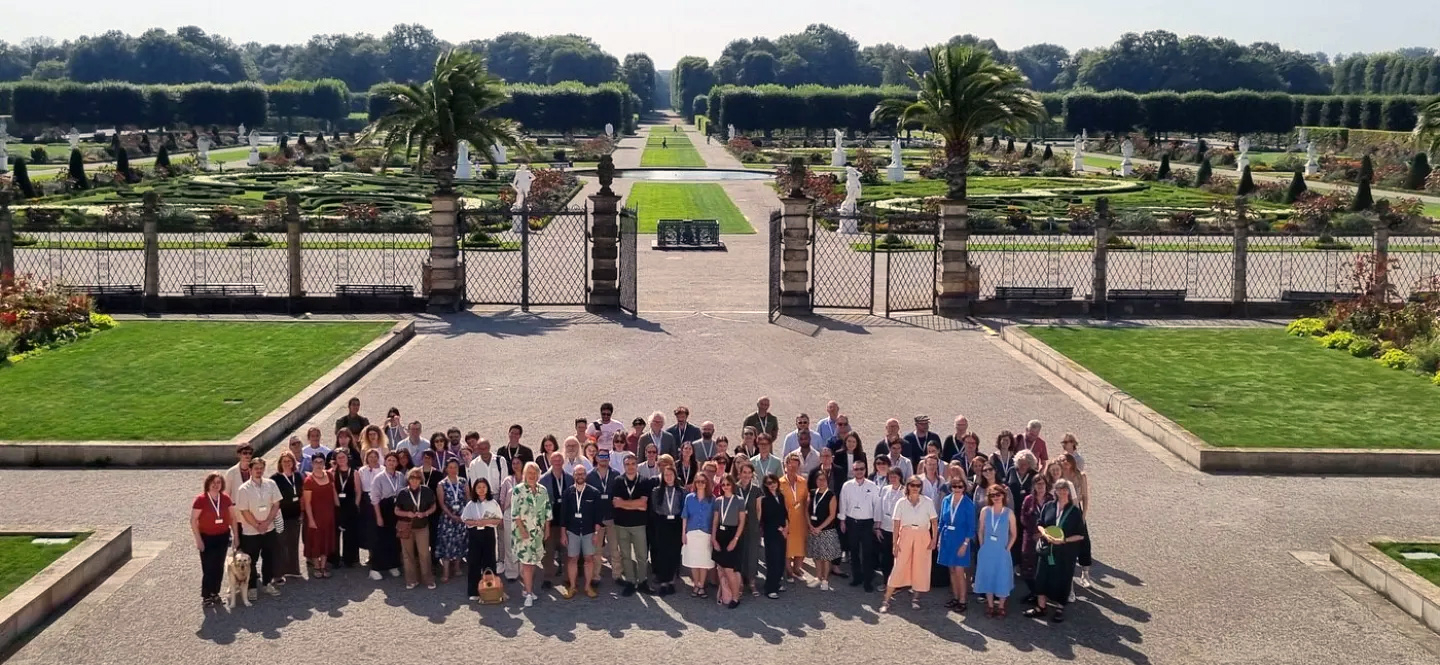Focus on Europe: Challenges and potentials
#Global Engagement
VolkswagenStiftung
Around 100 scientists from 22 projects and many different European countries took part in the status symposium "Potentials and Challenges for Europe".
The European idea is noticeably crumbling. Researchers funded by the Volkswagen Foundation met at the status symposium 'Challenges and potentials for Europe' to exchange views on the results of their research on the topic. One conclusion: fortunately, joint European research on Europe is not crumbling!
Europe is facing major challenges. Issues such as migration, demographic change, economic disparities between northern and southern Europe and differences in climate policy are putting a strain on unity. The researchers supported under our programme 'Challenges and Potentials for Europe' dealt with challenges such as these – but also with the opportunities European presents.
European researchers meet in Hanover
The status symposium Challenges and Potentials for Europe that took place from 4 to 6 September 2024 at Herrenhausen Palace in Hanover was attended by around 100 European researchers representing 22 projects.
In project presentations, keynotes and workshops led by the researchers, the participants was able to reflect upon methodological approaches and address open questions (programme here). The aim of the event was to promote academic exchange, strengthen networking between the projects, and discuss key topics such as transdisciplinarity, internationalisation and diversity in research. The symposium was jointly organised by the Volkswagen Foundation and the Institute of Sociology at Goethe University Frankfurt.
Europe's major tasks in a lively dialogue
The status symposium offered insights into very different facets of Europe, as the funded project teams had to consist of researchers from Germany and at least two other European countries. The diversity of perspectives emphasised the relevance of research collaboration across national borders. This was underscored in particular by the European partners and young researchers involved in the European projects, who contributed important perspectives and research findings to the debates.
In the "Algorithmic Fairness for Asylum-Seekers and Refugees (AFAR)" project, for example, a team from the UK, Italy, Denmark, Croatia and Germany explored the question of how technical solutions for the reception and distribution of asylum seekers and refugees can be critically examined and optimised.
In their project "Researching the transnational organisation of senior care, labour and mobility in Central and Eastern Europe (CareOrg)", researchers from the Czech Republic, Hungary, Ukraine, Romania and Germany investigated the extent to which the topic of care leads to major challenges within Europe due to the care drain – the migration of young people to work in the care sector of neighbouring countries.
The projects "Transformations in Housing and Intergenerational Contracts in Europe (THICE)" and "Demographic Change and the Intergenerational Persistence in Homeownership in Europe" focussed on home ownership and intergenerational equity and demographic change. The research projects were carried out by researchers from Hungary, Spain, the UK, the Netherlands, Ireland, and Germany.
The enthusiastic and open atmosphere led to a lively exchange and intensive networking between the researchers. Numerous discussions and new ideas for future collaborations showed the similarities between the participants and the synergy potential of their projects, which had many points of contact due to the thematic proximity of the calls for proposals.
Perspectives on "the other Europe" and the credibility of science
In particular, the keynote speeches by Romanian sociologist Prof. Manuela Boatcă (University of Freiburg) and Polish sociologist Prof. Elżbieta Korolczuk (University of Warsaw & University of Stockholm) provided valuable food for thought.
Boatcă's lecture on the "other Europe" – including overseas territories and regions that stand in the shadow of European success stories – opened up new perspectives on European identities and a look at neglected European (colonial) histories.
Korolczuk's lecture on the dwindling trust in science Europe stimulated a lively discussion about scientific credibility and the challenges facing research. Not only since the corona pandemic have scientists in all European countries been confronted with a growing mistrust of their work among various sections of the population. The rise of pseudo-scientific institutions and organisations hostile to science means that researchers also need to address issues of anti-science and anti-science communication outside their own research areas.
Transdisciplinarity: problems and opportunities
An important future topic of the symposium was transdisciplinary research – i.e. the collaboration of researchers with people outside the academic system. In the closing panel discussion, two funded researchers, a former reviewer, and a representative of the Foundation reflected on the advantages and disadvantages of this research approach.
It became clear that transdisciplinarity has so far been little recognised at universities, which makes the planning and implementation of such research projects more difficult. It also became clear that although transdisciplinarity is an important trend in research, the approach is not suitable for every project.
The consensus was that a great deal of sensitivity and perseverance is required to successfully organise the collaboration between researchers and stakeholders outside the academic community in the long term. The discussion in the final panel gave us as a foundation important input for the development of new funding programmes.
Our funding programmes
In the future, we want to enable researchers to pursue the key question: "What (European) society do we want to live in?" To this end, researchers can apply for funding in 2025 through the following funding initiatives, among others:




